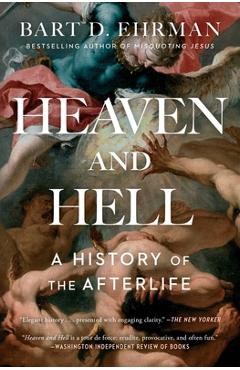A History of Economic Thought, Paperback/William J. Barber

Detalii A History of Economic Thought,
elefant.ro
184.99 Lei
197.99 Lei
Foreign Books
Wesleyan
A History of Economic Thought, - Disponibil la elefant.ro
Pe YEO găsești A History of Economic Thought, de la Wesleyan, în categoria Foreign Books.
Indiferent de nevoile tale, A History of Economic Thought, Paperback/William J. Barber din categoria Foreign Books îți poate aduce un echilibru perfect între calitate și preț, cu avantaje practice și moderne.
Preț: 184.99 Lei
Caracteristicile produsului A History of Economic Thought,
- Brand: Wesleyan
- Categoria: Foreign Books
- Magazin: elefant.ro
- Ultima actualizare: 06-05-2025 02:24:36
Comandă A History of Economic Thought, Online, Simplu și Rapid
Prin intermediul platformei YEO, poți comanda A History of Economic Thought, de la elefant.ro rapid și în siguranță. Bucură-te de o experiență de cumpărături online optimizată și descoperă cele mai bune oferte actualizate constant.
Descriere magazin:
Contributor(s): Author: William J. Barber Study of the grand ideas in economics has a perpetual intellectual fascination in it\'s own right. It can also have practical relevance, as the global economic downturn that began in 2007 reminds us. For several decades, the economics establishment had been dismissive of Keynesianism, arguing that the world had moved beyond the "depression economics" with which it dealt. Keynesian economics, however, has now staged a comeback as governments attempt to formulate policy responses to the Great Recession of the first decade of the twenty-first century. Many of the issues that faced economists in the past are still with us. The theories and methods of such men as Adam Smith, T. R. Malthus, David Ricardo, J.S. Mill, Karl Marx, Alfred Marshall, and J. M. Keynes are often relevant to us today--and we can always learn from their mistakes. In his stimulating analysis Professor Barber assesses the thought of a number of important economists both in terms of the issues of their day and in relation to modern economic thought. By concentrating on the greatest exponents he highlights the central properties of the four main schools of economic thought - classical, Marxian, neo-classical, and Keynesian - and shows that although each of these traditions is rooted in a different stage of economic development, they can all provide insights into the recurring problems of modern economics.

Produse asemănătoare

The Midnight Kingdom: A History of Power, Paranoia, and the Coming Crisis - Jared Yates Sexton
![]() libris.ro
libris.ro
Actualizat in 28/10/2025
167.4 Lei

The Cotillion Brigade: A Novel of the Civil War and the Most Famous Female Militia in American History - Glen Craney
![]() libris.ro
libris.ro
Actualizat in 28/10/2025
163.6 Lei

The History of Juneteenth: The History Of: A History Series for New Readers - Arlisha Norwood
![]() libris.ro
libris.ro
Actualizat in 28/10/2025
44.59 Lei

Color Struck - A Play;Including the Introductory Essay \'A Brief History of the Harlem Renaissance\' - Zora Neale Hurston
![]() libris.ro
libris.ro
Actualizat in 28/10/2025
96.64 Lei

Heaven and Hell: A History of the Afterlife - Bart D. Ehrman
![]() libris.ro
libris.ro
Actualizat in 28/10/2025
111.6 Lei
Produse marca Wesleyan

Citizen Azmari: Making Ethiopian Music in Tel Aviv, Paperback/Ilana Webster-Kogen
![]() elefant.ro
elefant.ro
Actualizat in 28/10/2025
180.99 Lei

Eight Lectures on Experimental Music, Hardcover/Alvin Lucier
![]() elefant.ro
elefant.ro
Actualizat in 16/06/2025
141.99 Lei

A History of Economic Thought, Paperback/William J. Barber
![]() elefant.ro
elefant.ro
Actualizat in 06/05/2025
184.99 Lei

The Alphabet in the Park: Selected Poems, Paperback/Adelia Prado
![]() elefant.ro
elefant.ro
Actualizat in 02/11/2021
79.99 Lei


